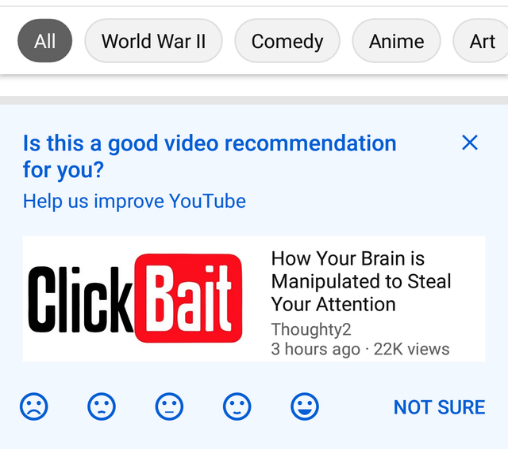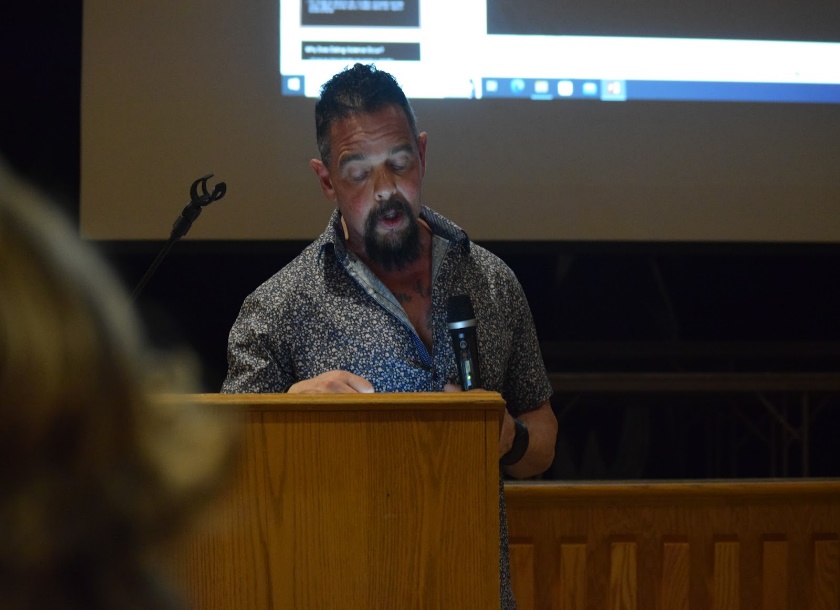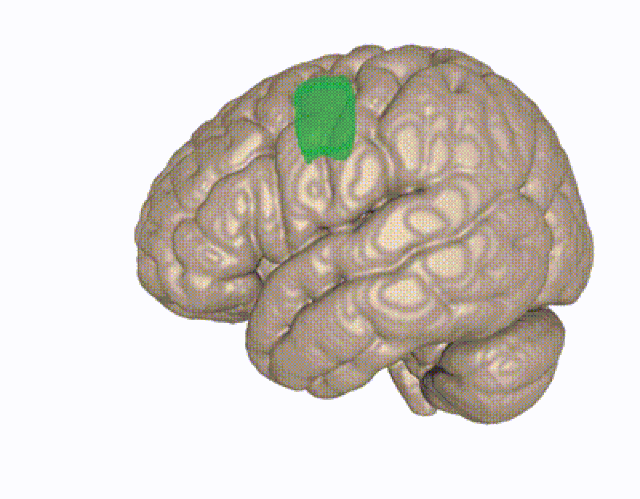Feb. 14, 2025/Midnight
Corry, PA. — Do you constantly find yourself being recommended the same videos all because of what you’ve searched and liked in the past? Have you ever wondered what influences your recommendations? These are things you may have asked yourself, and are all connected with, “the YouTube algorithm.” This algorithm is an advanced and clever AI system that selects videos based on user activity. It uses personal data ranging from location to how the user interacts with certain videos. It focuses on what the user likes and dislikes, watch and search history, and how long they interact with videos.
Have you ever received a survey asking about company products or which social media platforms you use? This is another way the algorithm works. However, this time it asks questions to gather information about you, but specifically your age group. This is demographic information, and by answering these questions, you may begin to see ads that try to sell you products, based on your responses.
The algorithm poses a multifaceted problem that needs to be addressed. For example, it limits video variety, shortens a user’s attention span, remembers a user’s past history, and influences other platforms.
One problem that users have encountered through this algorithm is no recommendation variety. The more a user engages with videos, the more frequent those types of videos appear in their recommendations. This limits their ability to see different types of videos, which discourages users from expanding their interests. This causes the user to find enjoyment only in what they’re seeing, which prevents them from increasing their curiosity into discovering other things. The user’s attention span also decreases. This makes it more difficult for them to enjoy other things, because they are “training” themselves to only enjoy short videos, especially when it’s aimed towards their interests. This leads to dissatisfaction with content longer than three minutes, and sometimes, the reality of their own lives. The user struggles to engage with longer content and interpret more complex information, which damages their brain. This reduces the ability to multitask, find contentment in other things, focus on longer activities, be productive, learn, and find well-being. It also takes away motivation to do other things except scroll through shorter videos.
Another problem with the YouTube algorithm that has become worse throughout the years is remembering past activity, but specifically watch or search history, and interactions with old videos. The algorithm predicts what a user wants based on how they used the platform in the past. Imagine that in the past, you were into a lot of extreme politics or “cringe” videos. Back then, that’s all you found entertainment in. Imagine you dedicated your time to watching memes, and what was considered “trending” at the time. Now, your interests have begun to change, and you find those old videos annoying. You want to forget about them, right? However, when you try to search for videos that pique your interests, you are reminded of the past activity that you now dislike.
That song that was one of your favorites years ago? The one you now regret listening to so much? That is forever going to be in your history, and it will stay in your recommended videos. Your current recommendations will be affected by “past you,” preventing you from moving on. The algorithm never forgets. It remembers everything about you, and it will continue to bring up your past history repeatedly, despite your best efforts to have it removed.
One final issue the algorithm has is YouTube recommendations and searches affecting other platforms. For example, the things you’re recommended on YouTube indirectly affect your Google search results. The platforms impact each other, increasing your chances of having non-relevant material recommended to you.
Despite the fact that YouTube can be a way for viewers to interact with content creators, the algorithm that makes up YouTube has many things wrong with it that need to be fixed in order to improve the platform.
First off, there should be a way to turn off recommendations completely. Disliking and removing certain activities does help, but it doesn’t actually filter out anything. It doesn’t remove the content the user may not want to see.
There should also be a system that the user can access in order to stop their activity from affecting other websites and platforms.
Another thing that should improve YouTube is to stop using AI for a user’s activity completely. There should be people who monitor the AI closely and help filter out unwanted activity successfully.
One final thing that should be added is a different app or platform that connects to the user’s account. This should allow them to swipe through different types of content, so they can pick out what they want and what they don’t want recommended to them.




